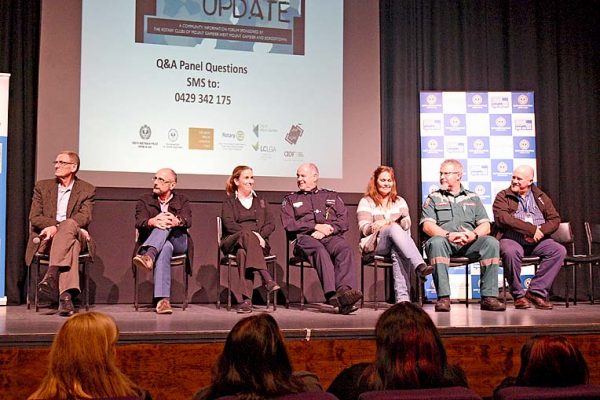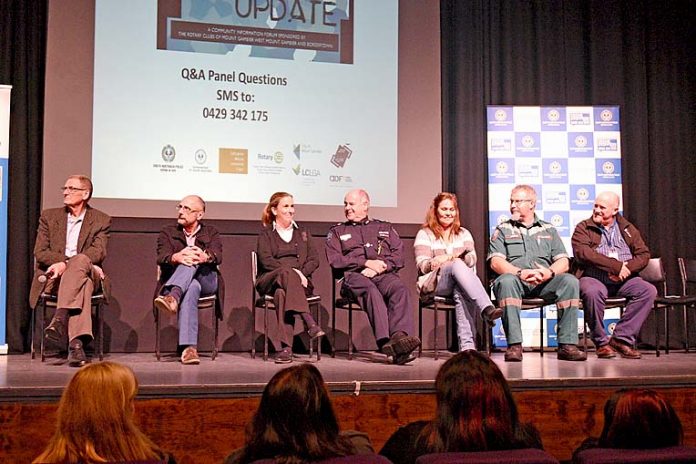
QUESTIONS surrounding rehabilitation opportunities dominated the Ice Update forum on Monday night when a panel of experts and key figures from the South East addressed the community’s concerns.
A panel of seven people tackling different areas of the ice problem in the South East and beyond fielded questions from the crowd about issues the region faced.
One key issue raised regarded what rehabilitation opportunities were available for people in the South East when it came to drugs.
Panel member Lynda Kember of Uniting Communities said there were a number of rehabilitation services available in the South East.
“We have two services that are residential, where we have individuals receiving support at a lot more intensive level, but we also have counselling services that are intensive,” Ms Kember said.
“Rehabilitation is about working towards how to cope with your drug dependency and working on strategies, skills and interventions that help you cope with difficulties in life.”
She added a lot of people confused rehabilitation with detoxification.
“People think that if they go to detoxification for five days they are rehabilitated, however it is a much longer process than that,” she said.
“There are residential services and outpatient services in our region that can help support that process.”
When speaking about spots available in rehabilitation centres, Life Without Barriers Adelaide case manager Kevin Rathjen said opportunities were limited.
“There are not a lot of spots available in actual rehabilitation centres, they generally run for three to 12 months and they are expensive,” Mr Rathjen said.
“In Adelaide there is a rehabilitation centre, but it costs around $70,000 and then there is the Woolshed in Strathalbyn, which will cost you around 75pc of your income.”
Dr Chris Holmwood said there were concerns around how country areas were tackling detoxification for substance abuse.
“The access is not as available as metropolitan areas where we have a dedicated service,” Dr Holmwood said.
“In saying that, more than a third of detoxification occurs in metropolitan hospitals, so I think there is more we can do in our country hospitals in terms of staff training to provide that service.”
Dr Holmwood said hospitals needed to receive resources and support to increase access.
“We cannot expect country hospitals to pick up their game unless they are provided with the support and funding they need,” he said.








